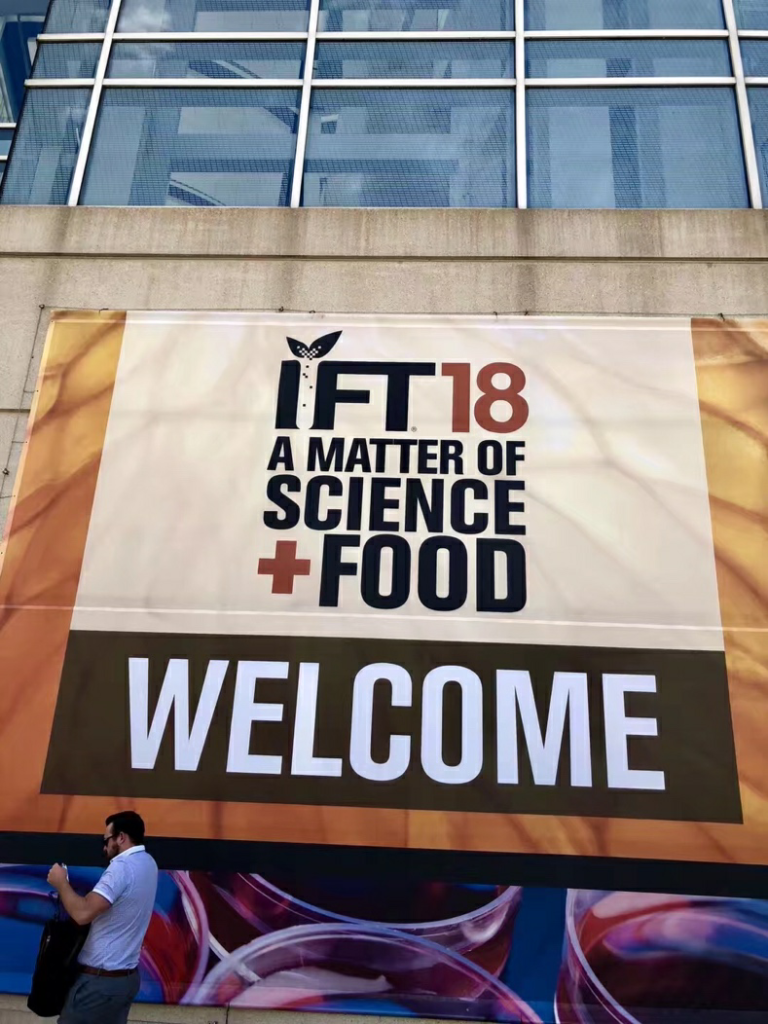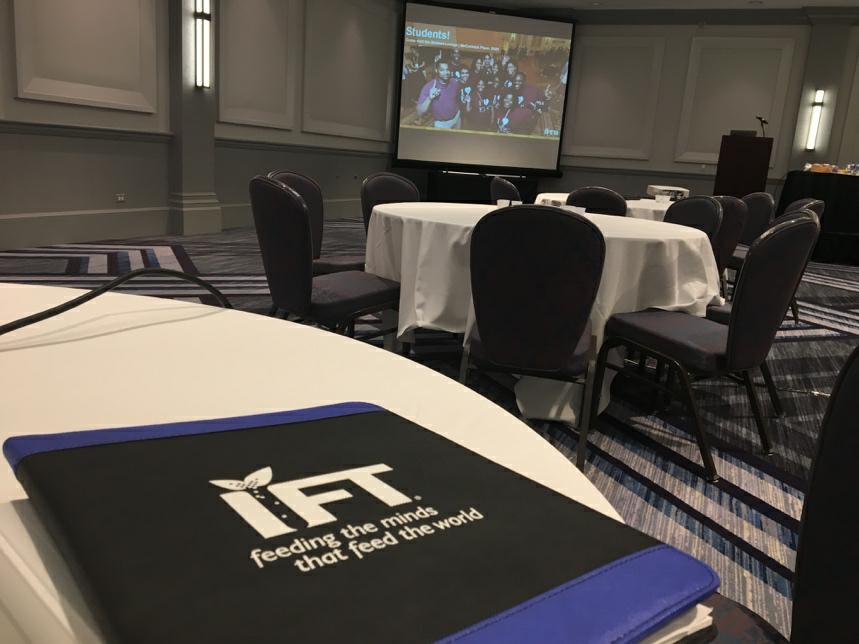By Karin Cho
Part One: Learning about Food Science Careers
In my high school, a lot of emphasis was placed on getting into college, and not as much on what you wanted to do after college graduation. The common message in high school was, “if you study hard now, you will succeed in college.” College was portrayed as “the finish line”. Instead of having a confusing application process for college, it was easily understood because all the application materials were located on one platform for most universities in the United States.
After high school, I finally succeeded into getting into college. And in my second year of college, I had an idea of my future career, however, there wasn’t a clear pathway on how to obtain that goal. I barely had a clue of what the next steps were that I needed to take in-between where I was then and where I wanted to be later. I was majoring in biochemistry at a liberal arts college with an excellent quality of education. Because this college doesn’t have a food science department, there were limited resources for how new graduates can pursue a career in food science.

Image by Marco Verch from flickr
The good news is that we can easily access other resources through the Internet. It’s true that you shouldn’t trust everything you read on the internet, but there are a handful of reliable sources you can trust. If you are in a similar position where you want to find a career in food science but don’t have a food science degree, I hope my experience can help guide you to where you want to be. On the flip side, if you want to learn more about the field of food science, consider reading this post by Mackenzie Hannum. Since this article is lengthy, I divided it into two parts: part one goes through resources to learn about food science careers and part two (which will be released in the near future) focuses on finding food science graduate programs.
Here are 2 points that were helpful for me as I planned for my career in food science:
#1: Learn about what the Institute of Food Technology (IFT) offers

Graphic by Karin Cho
I started to learn more about food science in my second year of college. If you type “what is food science” in google search, the first thing that populates in the internet search is the IFT website. This is how I learned about the Institute of Food Technology (IFT) and found out that there were annual EXPOs. Luckily, my college did offer funding for conferences, so I was able to take advantage of that to attend the EXPOs and get a better understanding of the type of research conducted in the field of food science, what companies are out there, and what the food science students were doing. For me, this last part was important because I was considering going to graduate school. Listening to the research presentations was useful for me to see what food science research entails and which projects/topics interested me.

Inside the short course class for 2018. Graphic by Karin Cho
The weekend before the official start date of the EXPO, there are usually short courses offered to attendees. Though the short courses require a separate fee, they give you a chance to network with current professionals and, especially if you do not have a food science background, teach you the foundations of food science. Since the short courses are only two days, they can’t cover a whole semester’s worth of food chemistry or food processing, but the instructors do an amazing job at explaining the key points. Usually, the short course website describes whether a course is fit for beginners or advanced professionals, so this can also help you narrow down which short course to apply.
The point of this event in terms of career finding was to network with people. IFTSA (Institute of Food Technology Student Association) usually hosts several seminars for students and new graduates that could help with job searching and planning your career path.
#2: Books, blogs, podcasts
IFT is unfortunately not free for students, and for membership, there is an annual fee (though it is much cheaper than what a non-student would pay). If you are looking for free resources, I think #2 (books, blogs, and podcasts) would be a good place to start. There are plenty of books published about food science, and many food history books also contain bits of food science, so reading books related to food science was useful for me to figure out what aspect of food science I am interested in. For example, if you are interested in microbiology, you could consider food safety or product development. Maybe you have an engineering background and want to learn more about food processing. Or, if you enjoy total synthesis, you could consider studying food chemistry. One of the great aspects of food science is that because it is an interdisciplinary study, there’s no one “correct” way of studying a topic. The only way to know what you are interested in is to learn about it, so consider taking a trip to the library or finding digital copies online.

Image by Gord Webster from flickr
The other free resources I used were blogs and podcasts. Science Meets Food is a great place to learn about the amazing research done in food science. For more career-oriented posts, consider foodgrads.com, where they post tips for students to secure internships and full-time positions in a food science career. If you are a reddit user, you could also take a look into r/foodscience to see what other food science enthusiasts are talking about. Sometimes you will be able to find very helpful people, as was the case for me when I found Bryan Le’s posts on reddit.

Image by Smithsonian Institutions Libraries from flickr
I also listen to several food science related podcasts, but there are two that I love for different reasons. The first is “My Food Job Rocks” hosted by Adam Yee, and as the title suggests, it is a podcast about different careers in food science. In some of the earlier episodes (ep. 33-40), he interviews several food science graduate students, which was useful for me to understand what kinds of programs are available and hear the student’s experience. Because he interviews many people at different points along their career, it was a great resource for me to learn about the different ways people get involved with food science. If you’re wondering whether to go to graduate school for food science, consider episode 15 “Choosing Between Work and Graduate School”. The second podcast that I follow is Gastropod hosted by Cynthia Graber and Nicola Twilley. This is more of a casual podcast to learn about the fun history and science of food. It’s a very listener-friendly podcast, in that you do not need any background in science because the hosts explain the concepts in layman terms. If you are still exploring the field of food science, this is a podcast I recommend because they cover a wide range of topics, and you might come across one (or more) that excite you to learn more.
I hope the 2 tips were helpful to get you started! If you are interested in more details for how to find and apply for food science graduate school programs, stay tuned for part two.
 Karin Cho | Linkedin
Karin Cho | Linkedin
SMF Blog Writer
Karin earned her B.A. in Biochemistry from Grinnell College, and during her time there, she was unsure how to merge her two passions for science and food. After attending several IFT events and completing a QA internship abroad, she decided to pursue a Master’s in Food Science and Technology from Iowa State University. Her research involves the development of fat alternatives. Growing up in a Chinese-Japanese household, she developed a palate for tasting new, sometimes bizarre, foods. When she’s not learning about food science, she enjoys watching science fiction movies, taking walks in parks, and learning new recipes from the people she meets during her travels.






wow, this is a really interesting field, I must say I enjoyed this course and after that, I also got placed at a reputed restaurant as a front desk executive where I’m Taking care of all the events.
Thanks for sharing this post it is helpful for freshers.